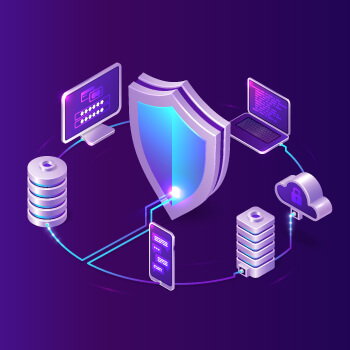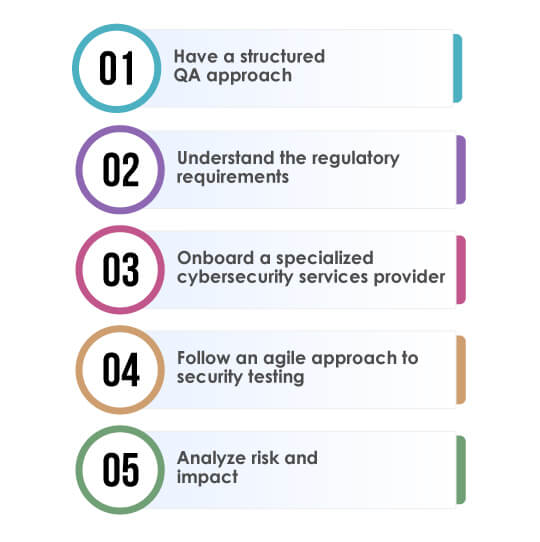
An Overview of Network Security Testing in Fintech

Network security testing is a crucial aspect of fintech operations, as the industry deals with sensitive financial information and requires the highest level of security. Network security testing involves testing the security measures put in place to safeguard networks, systems, and applications from unauthorized access, cyberattacks, and other security breaches.
Fintech companies need to conduct comprehensive security testing to identify vulnerabilities in their networks and systems and proactively mitigate them. Some of the common network security testing methods used in fintech include penetration testing, vulnerability scanning, and network secure configuration review.
Fintech companies should also perform regular security audits and compliance checks to ensure their security measures comply with relevant regulations and standards. Network security testing is an ongoing process that requires continuous monitoring and updating of security measures to keep up with evolving cyber threats.
The State of Fintech Cybersecurity in 2023

As of 2023, the state of Fintech cybersecurity remains a significant concern for both financial institutions and customers alike. Despite efforts to enhance security measures, cybercriminals continue to develop new and sophisticated methods to exploit vulnerabilities and gain access to sensitive financial information.
One of the primary challenges in Fintech cybersecurity is the increasing sophistication of cyberattacks. Hackers are using advanced techniques such as social engineering, phishing, and ransomware attacks to breach financial institutions’ systems and networks. Moreover, the rise of decentralized finance (DeFi) and non-fungible tokens (NFTs) have presented new opportunities for cybercriminals to exploit security weaknesses in the Fintech industry.
To counter these threats, Fintech organizations should are continually investing in cybersecurity measures such as multi-factor authentication, biometric authentication, and encryption technologies. However, these measures alone are not enough, and there is a growing need for collaboration between financial institutions, regulatory bodies, and technology providers to develop comprehensive cybersecurity frameworks.
Regulatory bodies are also stepping up their efforts to ensure that Fintech companies comply with cybersecurity standards. The European Union’s General Data Protection Regulation (GDPR) and the United States California Consumer Privacy Act (CCPA) are just two examples of regulations that are holding Fintech companies accountable for safeguarding customer data.
It is evident that the state of Fintech cybersecurity in 2023 remains a critical concern for the financial industry. While significant strides have been made in enhancing security measures, cybercriminals’ increasing sophistication necessitates ongoing investment in cybersecurity and collaboration between financial institutions, regulatory bodies, and technology providers to develop comprehensive cybersecurity frameworks.
Key Challenges of Network Security Testing in Fintech

Network security testing is a critical aspect of maintaining the security and integrity of financial technology (fintech) systems. However, there are several key challenges that fintech companies face when it comes to network security testing. Here are some of the most significant challenges:
The Complexity of Fintech Systems:
Fintech systems are complex and often include numerous interconnected applications and services, making it difficult to test them comprehensively. Additionally, the introduction of new technologies and the constant evolution of existing systems create further complexity, making it hard to keep up with the latest security threats and vulnerabilities.
Compliance with Regulatory Standards:
Fintech companies must adhere to strict regulatory standards, such as the Payment Card Industry Data Security Standard (PCI DSS) and the General Data Protection Regulation (GDPR). Ensuring compliance with these regulations is a significant challenge for network security testing, as failing to meet these standards can result in hefty fines, legal liability, and reputational damage.
Lack of Skilled Professionals:
There is a shortage of skilled cybersecurity professionals, and this shortage is especially prevalent in the fintech industry. As a result, fintech companies often struggle to hire and retain qualified security testers with the necessary skills and expertise to conduct effective network security testing.
Rapid Changes in Technology:
Fintech systems are constantly evolving, with new technologies being introduced regularly. This can make it difficult for security testers to keep up with the latest threats and vulnerabilities, as well as the latest tools and techniques used to exploit them.
Cost Constraints:
Fintech companies often operate on tight budgets, and security testing can be expensive. This can make it challenging to allocate sufficient resources to conduct thorough network security testing, especially when there are competing priorities.
Overall, network security testing is essential for fintech companies to maintain the security and trust of their customers. Addressing these challenges requires a proactive approach that prioritizes security and invests in the necessary resources and expertise to mitigate these risks effectively.
Overcoming the Network Security Testing Challenges in Fintech

Have a structured QA approach:
To overcome the complexity of Fintech systems, it is essential to have a structured approach to network security testing. A thorough understanding of the Fintech system’s architecture, protocols, and data flow is necessary. Utilizing automated tools and techniques for testing can help in identifying vulnerabilities and potential threats. Conducting regular penetration testing, security audits, and risk assessments can aid in mitigating risks associated with complex Fintech systems.
Understand the regulatory requirements:
To overcome the challenge of compliance with regulatory standards, it is essential to have a clear understanding of the specific regulatory requirements applicable to the Fintech industry. Engaging with regulatory bodies and compliance experts can help in ensuring that the Fintech systems adhere to the regulatory standards. Regular testing and audits can help in identifying areas of non-compliance and help in addressing them proactively.
Onboard a specialized cybersecurity services provider:
To overcome the challenge of a lack of skilled professionals, organizations can invest in training and development programs for existing staff. Partnering with specialized cybersecurity service providers can help in accessing the necessary expertise and resources. Utilizing automated tools and technologies for testing can help in reducing the dependency on skilled professionals.
Follow an agile approach to security testing:
To overcome the challenge of rapid changes in technology, organizations can adopt an agile approach to security testing. Regular updates and upgrades to security protocols, tools, and techniques can help in keeping up with the changes in technology. Collaborating with technology vendors and security experts can aid in identifying emerging threats and potential vulnerabilities.
Analyze risk and impact:
To overcome the challenge of cost constraints, prioritize security testing based on risk and impact. Utilize cost-effective testing methodologies such as automation. Invest in preventative measures such as secure coding practices to reduce the cost of testing.
Conclusion
In today’s digital age, where the financial industry is increasingly relying on technology, network security testing has become a necessity. Network security testing provides a proactive approach to identifying vulnerabilities and potential threats, which helps to prevent cyber-attacks and data breaches. Fintech companies must prioritize security testing to ensure they are providing a safe and secure environment for their clients. The ever-evolving threat landscape and the sensitive nature of financial data make it imperative for fintech companies to invest in robust security measures.
Through regular security testing, fintech companies can identify and remediate vulnerabilities before they can be exploited by cybercriminals. This not only protects sensitive financial information but also helps to maintain the trust of customers, partners, and stakeholders. Ultimately, investing in network security testing is an investment in the long-term success of a fintech business.
How TestingXperts Helps Fintech Businesses with Network Security Testing?

TestingXperts (Tx) is one of the 5 largest pure-play software testing services providers globally. Tx has been chosen as a trusted QA partner by Fortune clients and ensures superior testing outcomes for its global clientele. We have rich expertise in enabling end-to-end testing services for global clients across various industry domains like healthcare, telecom, BFSI, retail & eCommerce, etc. With our domain knowledge and with over a decade of pure play testing experience, the company has been serving the global clientele with high-quality next-gen testing services to deliver superior solutions to clients.
Our team of experienced security professionals has extensive knowledge of fintech industry standards and regulations, and we use that knowledge to tailor our services to meet your specific needs. We provide network security testing services that are designed to test and evaluate the security of your organization’s infrastructure, systems, and applications.
We utilize the latest tools and techniques to simulate real-world cyber-attacks and identify vulnerabilities in your network. Our testing includes penetration testing, vulnerability assessments, and security audits. We work with you to identify the most appropriate testing methodology for your organization and provide detailed reports outlining our findings and remediation recommendations.
Our approach to network security testing is based on a deep understanding of the challenges and risks faced by fintech companies. We prioritize the confidentiality and integrity of your data and systems and work to ensure that your organization is compliant with industry standards and regulations.
Our Network Security Testing Services Include:
Vulnerability Assessment:
We use automated tools and manual testing to identify vulnerabilities in your network and applications. We then provide a detailed report outlining our findings and recommendations for remediation.
Penetration Testing:
Our experienced security professionals simulate real-world cyber-attacks to identify vulnerabilities in your network and systems. We then provide detailed reports outlining our findings and recommendations for remediation.
Security Audit:
We review your organization’s security policies, procedures, and controls to ensure that they meet industry standards and regulations. We then provide a detailed report outlining our findings and recommendations for improvement.
Threat Modeling:
We proactively identify potential threats and vulnerabilities before they can be exploited. Our experts will work with you to create a comprehensive model that includes all potential threats and attack vectors, helping you build a robust security system that can withstand any attack.
Comprehensive Reporting:
We provide a detailed report outlining the vulnerabilities and risks we have identified, along with recommendations on how to fix them. We also provide ongoing support to ensure your security remains strong in the face of ever-evolving cyber threats.
Discover more
Get in Touch
Stay Updated
Subscribe for more info




